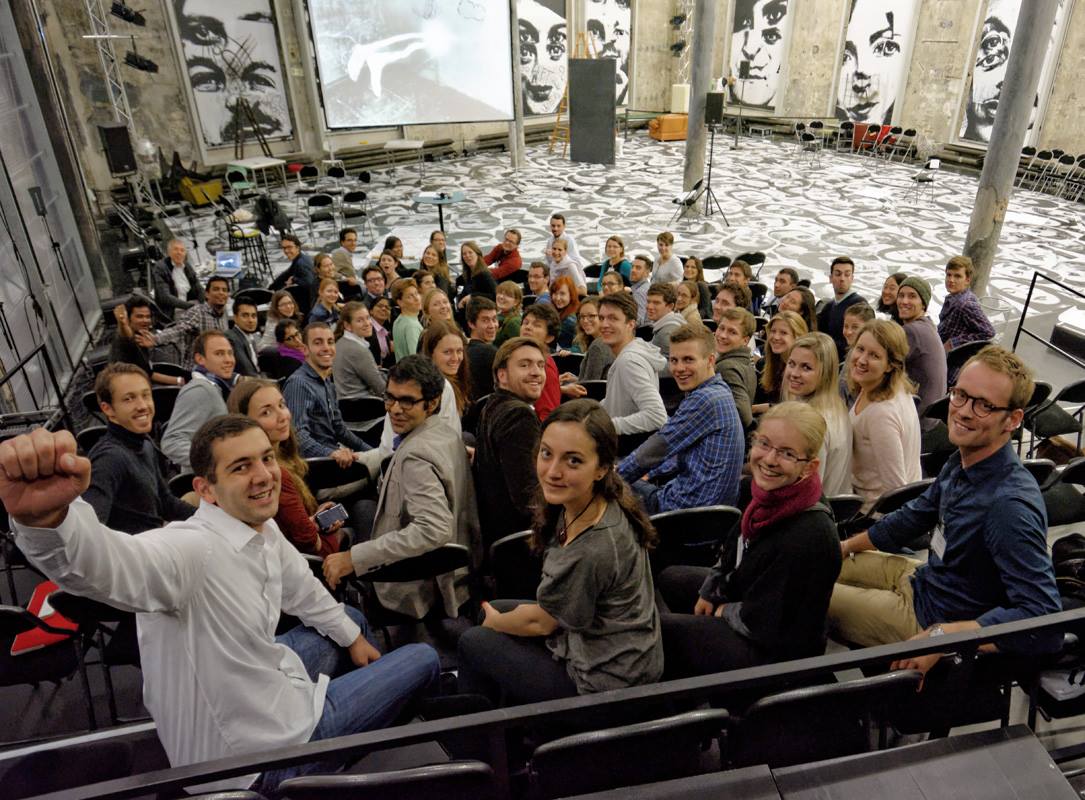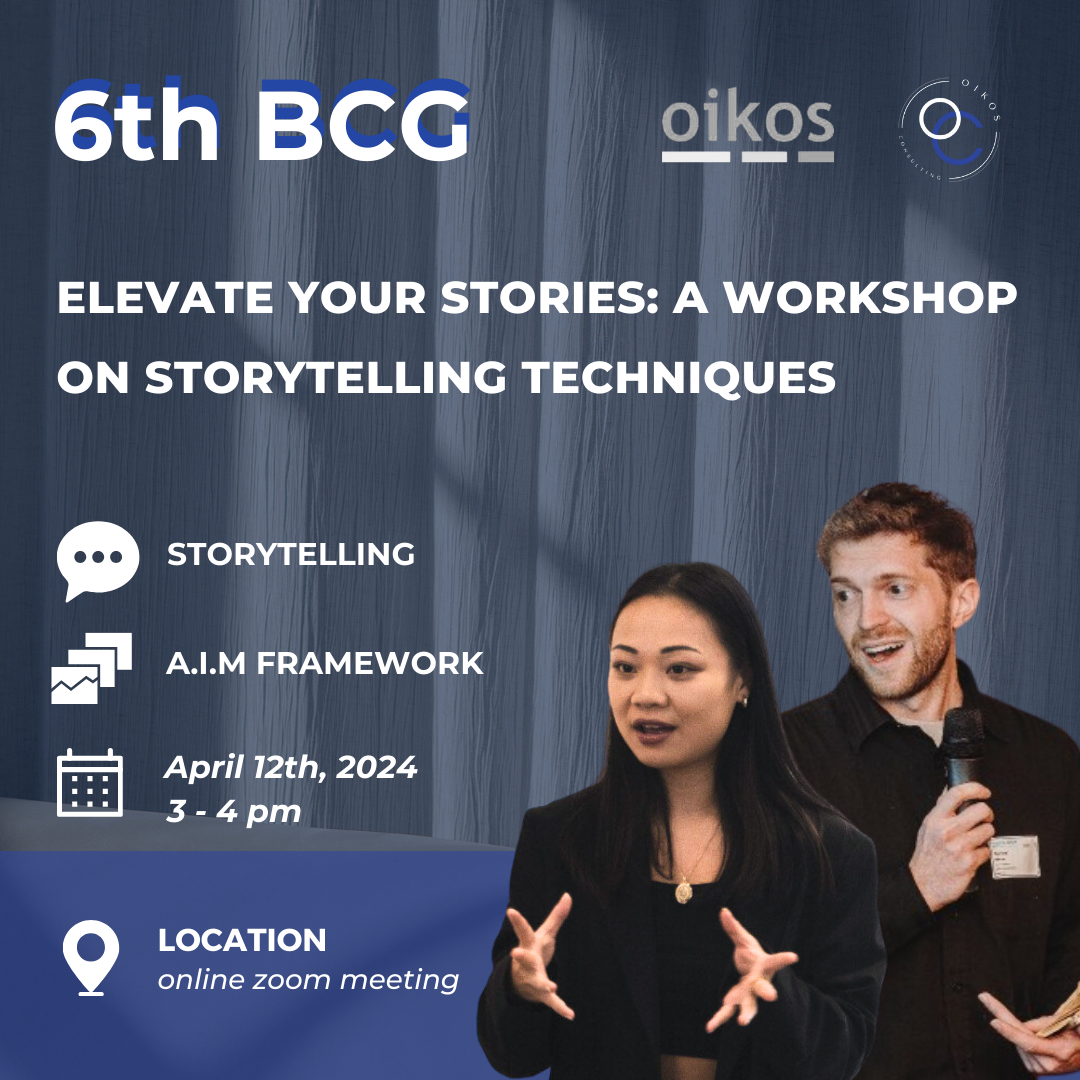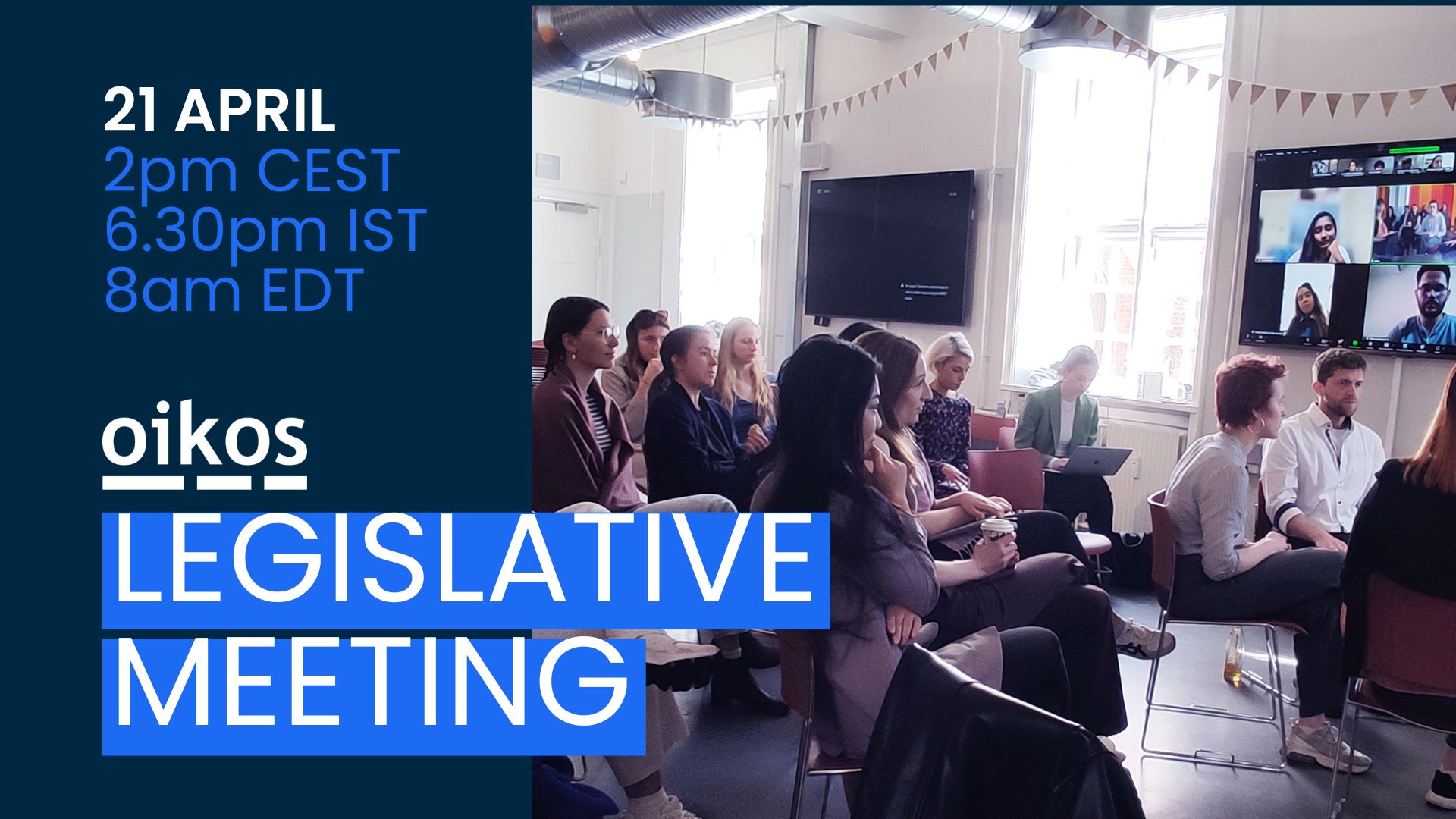
Time for a Renaissance in the Business Schools?
— Off we go!
The alarm rang early in the morning and a special day for me had begun. I packed my laptop, a notebook, and a pen to begin my first experience as a reporter to attend the oikos FutureLab 2013. As a student studying Economics at the University of St. Gallen, I was eager to be part of the process of changing the paradigm of the education system in business schools. In two days, the participants of the Futurelab would be introduced to many concepts about how the current education in Business schools may be better adapted to sustainability. They would also get the chance to engage each other in discussions about the university of the future.
The Speeches

As a new oikos member, I was touched by the passion the participants and speakers have shown: for them the transformation of education was more than an annual conference topic, their inputs were personal and represented their beliefs and vision for the future. What especially caught my attention was the presentation held by the founder of Accenture Development Partnerships Gib Bulloch on Day 1. Mr. Bulloch made an analogy between the oikos organization and an orchestra—it is the whole crowd within oikos that produced the harmony and encouraged us to steer our efforts in the same direction. During a short interview with Mr. Bulloch, he shared a few tips for aspiring change-maker students and oikos members: they should follow their beliefs and not fear being different. Also, Mr. Bulloch advised future sustainability leaders to go to the place where one is reminded of why he or she wanted to make a difference in the first place.

On Day Two, the focus was the Education Renaissance already taking place around the world. The audience was privileged to have a variety of speakers from different countries to talk about their experiences of changing the Business education system. What especially caught my attention was the presentation by Rasmus Johnson, the assistant professor at Copenhagen Business School. “The real world begins in the classroom,” he said. Instead of solving problems universities should focus on creating them. He believes that one can learn and understand more when one actively identifies the challenges and searches for potential new solutions. The proactive way of learning is more effective than any passive acceptation of knowledge served by lecturers. Max Oliva continued this thought by calling for entrepreneurial learning approaches: instead of separating entrepreneurship from education, we should bring them together. Similar ideas were shared by Traian Bruma, a supporter of self-directing learning and the founder of a revolutionary university in Romania and Martin Cadée, who created platform for people who sought for ownership of their own learning.
The Experience
The experience of these two days was both enlightening and reflective—apart from the speeches, most hours were dedicated to project development and group discussions on what oikos’ future and how a future university should be. During the Impact Fair, one of the groups developed their project ideas with the help of the invited speakers through the oikos Impact Canvas. This tool, created in the FutureLab Conference 2012 with the input of the participants, helps to develop impact-driven projects. Linus Grob, a participant of oikos St. Gallen was pleased with this workshop, stressing that with this new tool, one was able to formulate a project plan in a short period of time with all the most important elements included.
During the Open Space session several initiatives and ideas were advanced. For example, a group of oikos members and stakeholders interested in sustainability and finance discussed the launch of a new initiative: the oikos Finance. Its main aim is to trigger institutional change to make sustainability an integral part of finance teaching and research at their universities. The group defined the impact and goals they want to achieve in 2014. As a follow-up, they have already arranged a conference call to exchange information, develop further ideas and leverage their projects.
It Is Not the End
During this two days conference, many new ideas are developed beginning a long, successful journey for oikos. Our horizons broadened, our knowledge widened, and perhaps most importantly, our friendship with other members of oikos community was cultivated. The Futurelab is not the end, it is in fact the kick-off and further-development of many initiatives such as oikos Finance, oikos Economics, oikos Leadership School and oikos Fashion. When the day ended with the wrap-up session, many participants shared their thoughts:
Nikolay Ivanov, from Copenhagen—with an initially vague understanding and a bit of skepticism about the conference, “I was surprised and inspired”. He was touched by many other participants at the conference and left with the goal of becoming a better person.
Jan Doerr, from Luxemburg— “The conference is a perfect platform for effective discussion on sustainability because it offers the chance for people all around the world to share their stories of obstacles and merits and eventually turn these into a realistic, realizable project plan.”
Article written by Kitty Huang
Photos by Stürmer Foto





